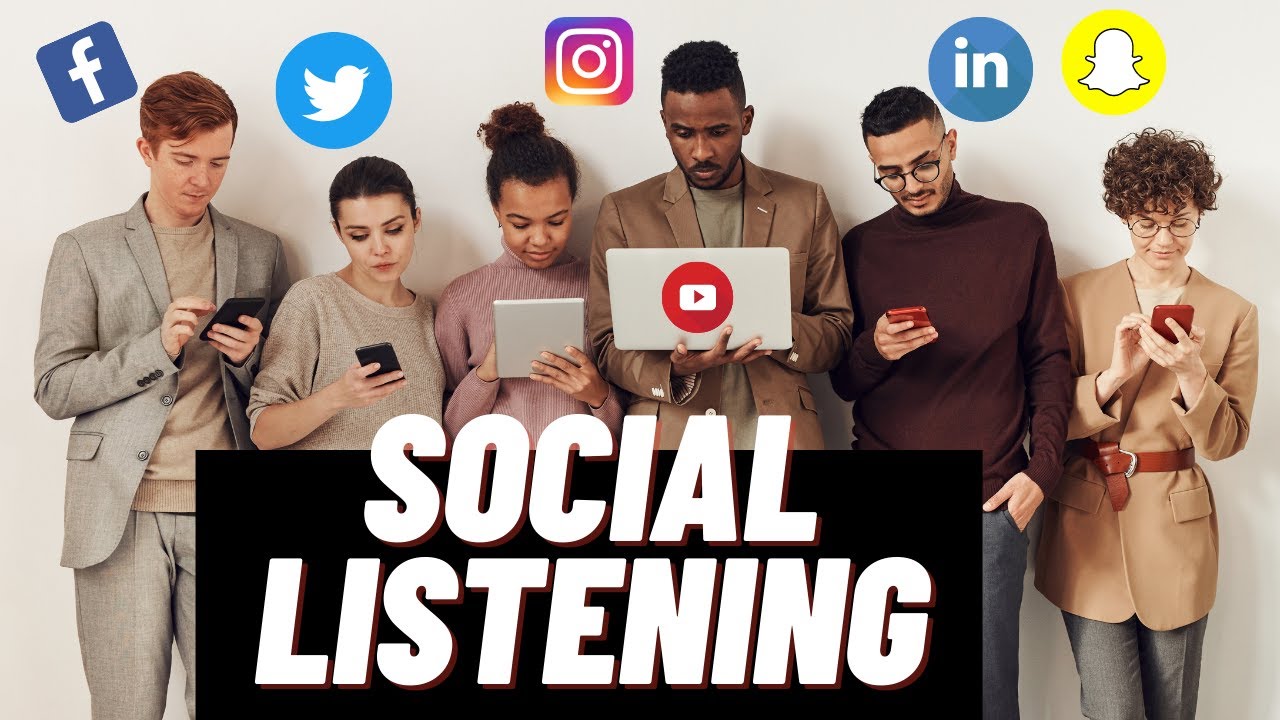Have you ever wondered why social listening could be crucial for your business? Social listening might just be the secret ingredient your business needs to thrive. In today’s digital-first world, understanding the chatter surrounding your brand can unlock new opportunities and help you stay competitive.
Why Social Listening Could be Crucial For Your Business?

Understanding Social Listening
What is Social Listening?
Social listening involves tracking and analyzing online conversations to understand what people are saying about your brand, industry, or competitors. Think of it as your digital radar, picking up signals that could impact your business.
Difference Between Social Listening and Social Monitoring
While social monitoring focuses on metrics like mentions and engagement, social listening goes deeper. It interprets the sentiments behind those mentions, uncovering insights to guide your strategy.
The Importance of Social Listening
1. Gaining Customer Insights
Social listening helps you tap into the minds of your customers. What do they love? What frustrates them? These insights can help you fine-tune your offerings.
2. Building Customer Relationships
Responding to customer feedback in real time shows you care. It fosters trust and builds loyalty.
3. Staying Ahead of Competitors
By keeping an ear to the ground, you can identify gaps in the market that your competitors might have missed.
How Social Listening Works
Social Listening Tools
Platforms like AIM Insights, Brandwatch, and Hootsuite make social listening a breeze. They gather data from multiple channels, providing actionable insights.
Steps Involved in Social Listening
- Identify your goals.
- Choose the right tools.
- Monitor relevant keywords and phrases.
- Analyze the data for patterns and trends.
- Take action based on insights.
Why Social Listening Could be Crucial For Your Business?
1. Enhancing Customer Service
Quickly addressing customer concerns improves satisfaction and prevents issues from escalating.
2. Improving Product Development
Customer feedback can inspire product innovations and improvements.
3. Strengthening Brand Reputation
By engaging with positive mentions and addressing negative ones, you can shape how your brand is perceived.
Social Listening for Marketing
1. Identifying Trends and Opportunities
Spotting trending topics allows you to craft timely and relevant campaigns.
2. Boosting Campaign Effectiveness
Social listening ensures your campaigns resonate with your audience, driving better results.
Social Listening and Crisis Management
1. Detecting Issues Early
Social listening can alert you to potential crises before they spiral out of control.
2. Responding to Negative Feedback Effectively
A thoughtful, timely response can turn a negative experience into a positive one.
Using Social Listening for Competitive Analysis
1. Monitoring Competitors
Keep tabs on what people are saying about your competitors. Their weaknesses could be your strengths.
2. Identifying Market Gaps
Unmet needs in the market often emerge through online discussions.
Top Social Listening Tools
- AIM Insights: Tailored for advanced sentiment analysis and industry trends.
- Hootsuite: Ideal for beginners with a user-friendly interface.
- Brandwatch: Excellent for in-depth analytics.
Challenges
1. Data Overload
With so much data to sift through, it’s easy to feel overwhelmed.
2. Misinterpretation of Insights
Without proper context, insights can lead to misguided strategies.
Strategies for Effective Social Listening
1. Setting Clear Goals
Define what you want to achieve with social listening—be it improved customer service or competitive intelligence.
2. Integrating Insights into Decision-Making
Make social listening a core part of your business strategy for maximum impact.
Case Studies
- Example 1: A global brand used social listening to identify a product defect early, saving millions.
- Example 2: A small business discovered a new target audience through social media discussions.
Future Trends
1. Emerging Trends
Voice and video content analysis is becoming a vital part of social listening.
2. Role of AI in Social Listening
AI-powered tools are making it easier to analyze large volumes of data with greater accuracy.
How to Get Started with Social Listening
- Define your goals.
- Choose a platform that fits your needs.
- Train your team on how to use the tools.
- Start small and expand as you grow confident.
Conclusion
Social listening is no longer optional—it’s essential. By tuning into the digital conversations around your brand, you can make informed decisions, build stronger relationships, and outpace the competition. Why wait? Start listening today and unlock your business’s full potential.
Want to see how social listening can transform your business? Request a demo from AIM Technologies today and experience the power of advanced insights tailored to your needs.
FAQs
1. What is the best tool for social listening?
There are several excellent tools, including AIM Insights, Brandwatch, and Hootsuite, depending on your needs and budget.
2. How often should I conduct social listening?
Continuous monitoring is ideal, but even weekly reviews can provide valuable insights.
3. Can small businesses benefit from social listening?
Absolutely! Social listening helps small businesses understand their customers and compete effectively.
4. Is social listening expensive?
Many tools offer affordable pricing plans, and the insights gained often outweigh the costs.
5. How can I measure the success of social listening?
Track metrics like customer sentiment, engagement, and the impact on your business goals.



